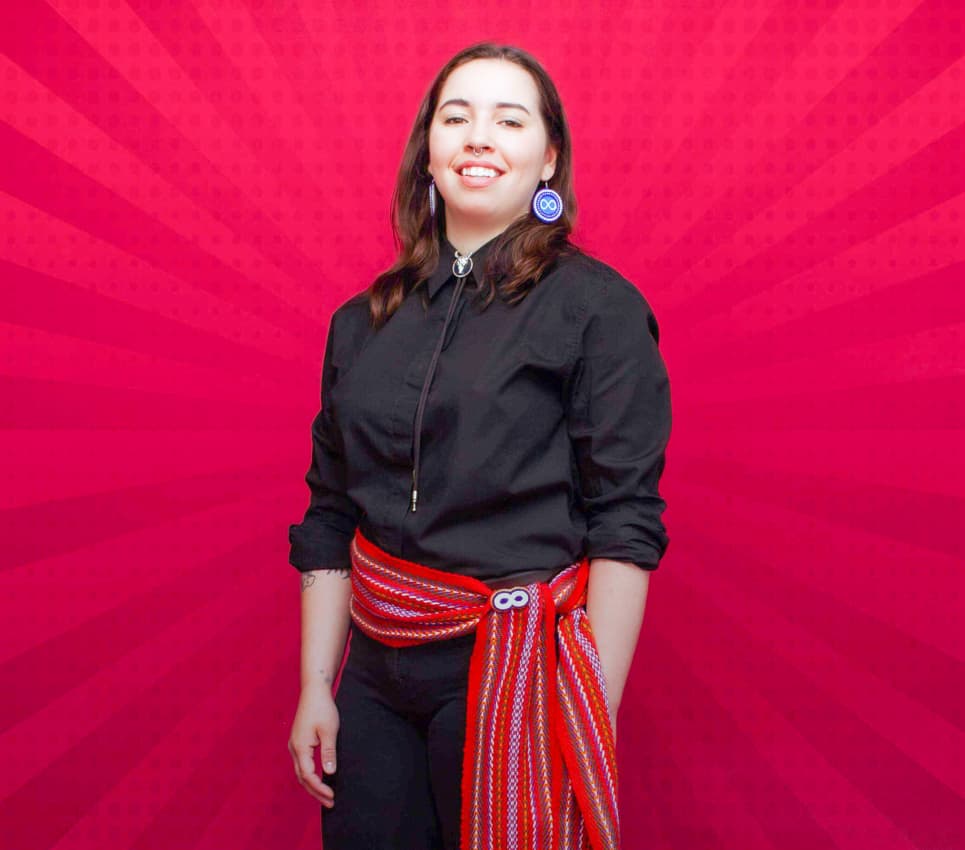
Being an activist is not about being alone at the top for Autumn LaRose-Smith.
A fourth-year Saskatchewan Urban Native Teacher Education Program student majoring in Indigenous studies and English, LaRose-Smith is also the vice-president of student affairs at the University of Saskatchewan Students’ Union and a board member of the Ness Creek Cultural and Recreational Society.
LaRose-Smith says she “[tries] to be an active body in the community, whether or not that is organizing or raising awareness for different things or just trying to build community.”
The making of an activist
LaRose-Smith’s journey to advocacy began at a young age; as a girl, she began volunteering for Elders in events within the Métis community and doing leadership training with the YMCA.
“My mom raised me to be an active member and volunteer. As things went on, I found myself in different leadership roles on and off-campus,” LaRose-Smith said. “I really like being able to do things that I know are for the betterment of the community and to try and hopefully build up other people as well.”
Living in the intersection
Her identity as an Indigenous and queer woman is central to LaRose-Smith’s activism.
“I don’t really see them as being separate parts of myself. When I’m at a Métis event, I’m still a queer woman, and when I’m at events specific for queer people, I’m still Métis,” LaRose-Smith said. “When I wear my sash, I also have a rainbow pin on it and they’re always together.”
She adds that because of her intersecting identities and public figure-status, people sometimes turn to her to “fill a diversity quota,” but she tries to use this as an opportunity to lift up other voices.
“A lot of times, if I know someone is a better fit for the position than me, I’d rather them speak instead and I’ll let other lead organizers know,” LaRose-Smith said.
Rethinking leadership
LaRose-Smith’s approach to leadership is community-minded. She is skeptical of focusing on only one activist’s voice even when it is hers.
“What I have learned is individual leadership is inherently like capitalism, and we need to be focusing on community leadership,” LaRose-Smith. “So I think it’s really important for collaboration within the community.”
While others consider her a leader, LaRose-Smith says she is still learning, and she is using her visibility to help others along.
“It’s really flattering that others would consider me a leader. I’m always hesitant to call myself a leader because I always like to see it as if I’m on a leadership journey. But I like to encourage and uplift others,” LaRose-Smith said. “I don’t want to be held on some pedestal.”
Speaking up at the university
LaRose-Smith has stayed an active member of the community as she studies for her degree at the U of S. She says activism in a university setting comes down to standing by your beliefs in everyday scenarios.
“I think you can turn any situation into a learning situation, even if that just means speaking up in class,” LaRose-Smith said. “If you hear something that isn’t right, or you feel empowered to speak up, I think it’s always really important to do that.”
Being a student activist is not without challenges; LaRose-Smith says it can be difficult to get taken seriously. However, she says universities are “a petri dish for leadership.” She reminds students to make use of their power.
“Students have a lot more power on campus than they believe that they do, and I think the university knows that,” LaRose-Smith said. “We need to remember to always challenge the university. Just because we’re students doesn’t mean that we don’t know our truth.”
—
Nathalie Baquerizo
Photo: Supplied by Autumn LaRose-Smith